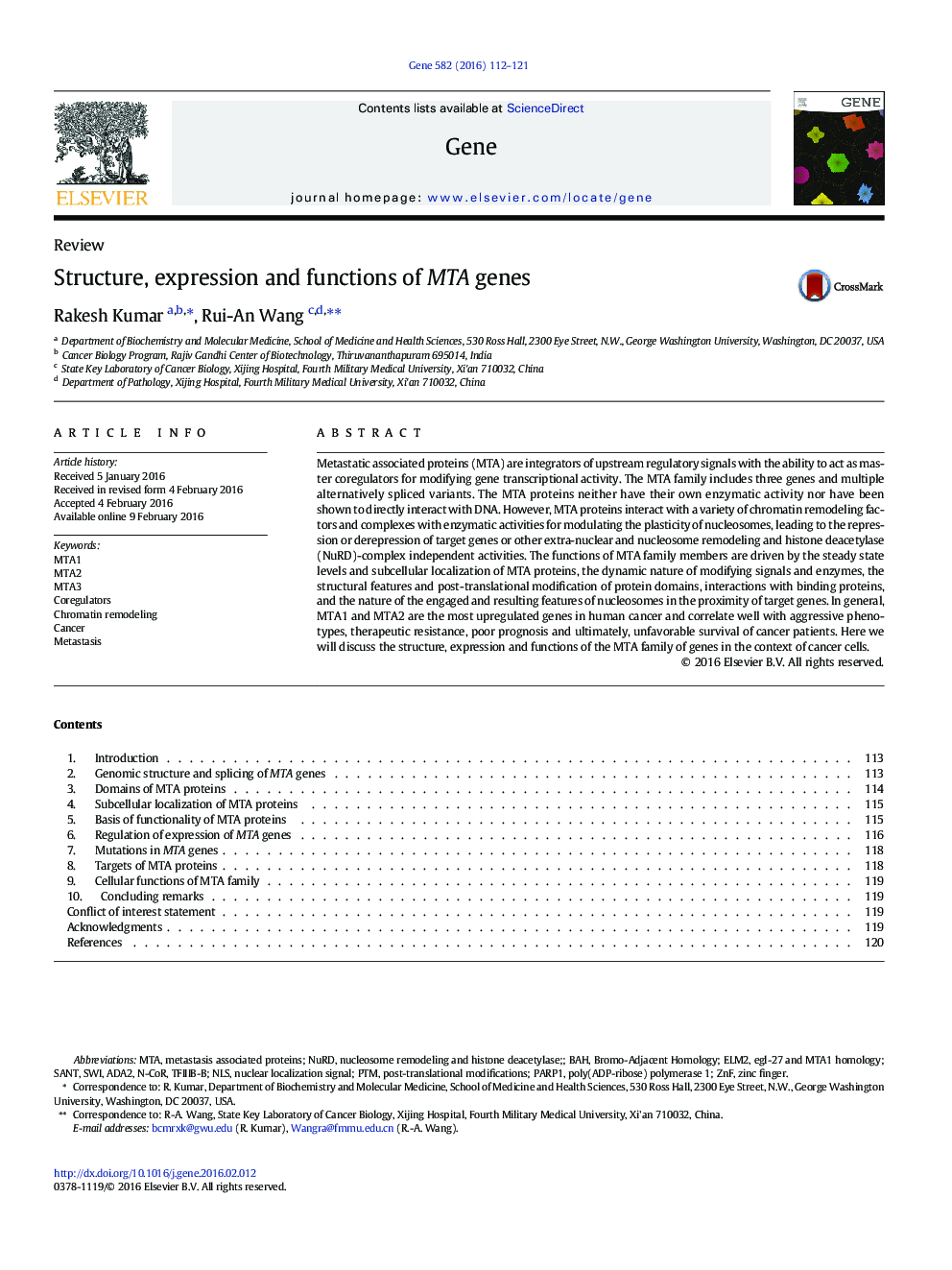| Article ID | Journal | Published Year | Pages | File Type |
|---|---|---|---|---|
| 2815100 | Gene | 2016 | 10 Pages |
•Metastatic associated proteins are integrators of upstream signals into gene activity.•Functions of MTA family are driven by its expression, localization,post-translational modifications.•MTA1 and MTA2 upregulation in human cancer associates with tumor aggression.
Metastatic associated proteins (MTA) are integrators of upstream regulatory signals with the ability to act as master coregulators for modifying gene transcriptional activity. The MTA family includes three genes and multiple alternatively spliced variants. The MTA proteins neither have their own enzymatic activity nor have been shown to directly interact with DNA. However, MTA proteins interact with a variety of chromatin remodeling factors and complexes with enzymatic activities for modulating the plasticity of nucleosomes, leading to the repression or derepression of target genes or other extra-nuclear and nucleosome remodeling and histone deacetylase (NuRD)-complex independent activities. The functions of MTA family members are driven by the steady state levels and subcellular localization of MTA proteins, the dynamic nature of modifying signals and enzymes, the structural features and post-translational modification of protein domains, interactions with binding proteins, and the nature of the engaged and resulting features of nucleosomes in the proximity of target genes. In general, MTA1 and MTA2 are the most upregulated genes in human cancer and correlate well with aggressive phenotypes, therapeutic resistance, poor prognosis and ultimately, unfavorable survival of cancer patients. Here we will discuss the structure, expression and functions of the MTA family of genes in the context of cancer cells.
Graphical abstractFigure optionsDownload full-size imageDownload high-quality image (220 K)Download as PowerPoint slide
